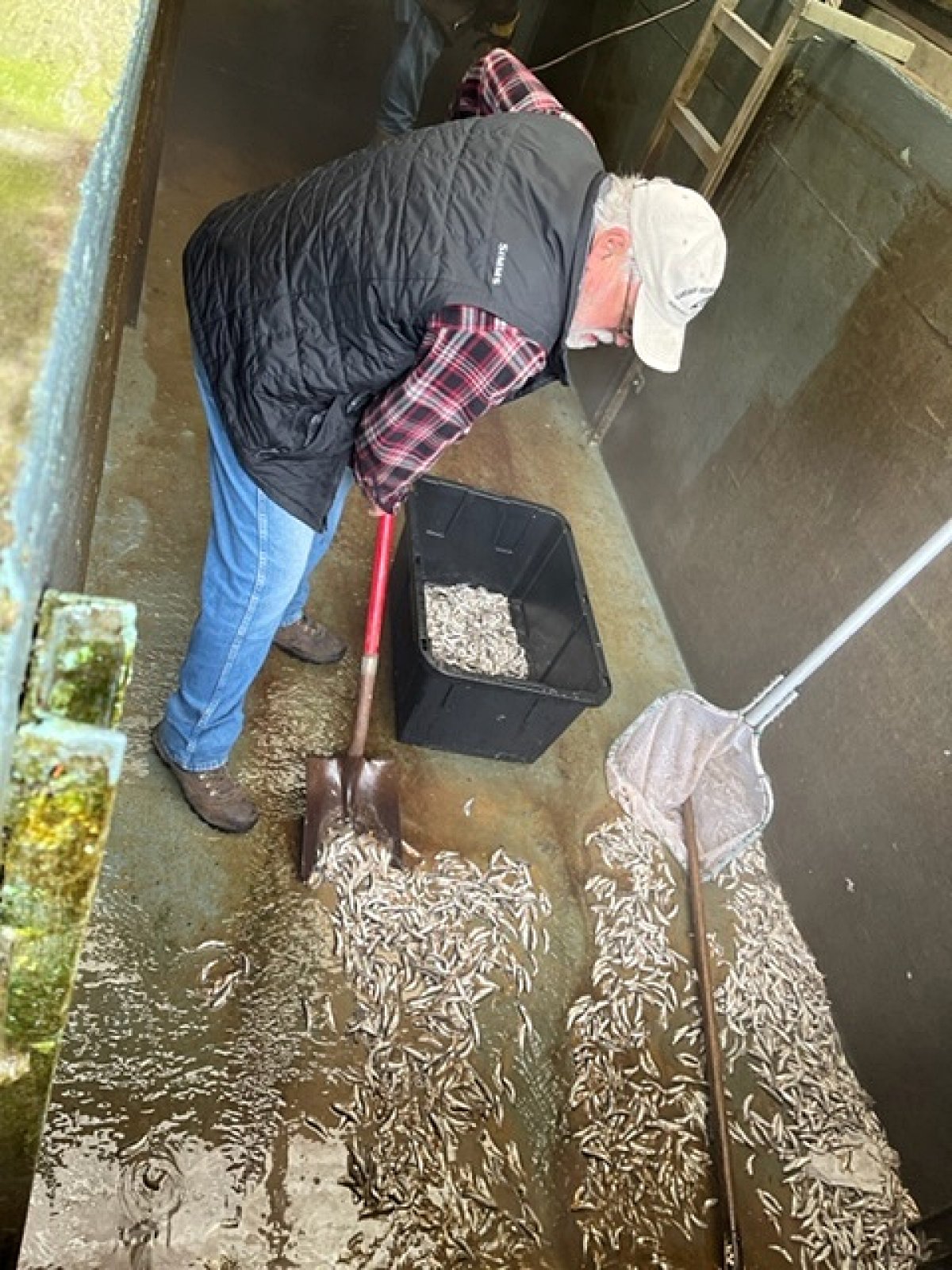An Oregon man is facing multiple charges after he dumped bleach into a tank at a Douglas County hatchery, killing roughly 18,000 young Chinook salmon, according to state and local authorities.
In a statement announcing the arrest of Joshua Heckathorn, 20, of Gardiner, the Oregon Department of Fish and Wildlife (ODFW) called the poisoning of thousands of fish that are a protected species, a "significant poaching incident." The fish were killed at a volunteer-run hatchery.
The investigation began on April 22 when Douglas County Sheriff's Office (DCSO) deputies responded to a call that someone "forcibly made entry into the hatchery building" and poured a chemical substance into one of the rearing ponds causing the death of thousands of pre-smolt Chinook salmon, ODFW said.
The following day, around 6:30 p.m., a DCSO deputy patrolling the area spotted a man in the hatchery and "behind the locked gate and no trespassing signs." The man, identified as Heckathorn, authorities said, was questioned at the scene and "admitted to trespassing on the property and entering a storage location and handling the chemical bottle."
Heckathorn was arrested and booked into the Douglas County jail on charges of burglary, criminal trespass and criminal mischief. Authorities say poaching charges are expected to be added.

Newsweek reached out via email on Tuesday night to DCSO for comment. It was unclear at the time of publication whether Heckathorn had retained an attorney who could speak on his behalf.
Due to the high number of salmon killed, DCSO is working the case with the Oregon State Police (OSP) Fish and Wildlife Division to "address both vandalism on the property and a significant poaching incident," OSP Sergeant Levi Harris said in a statement.
"Poaching charges will include Unlawful Taking Chinook Salmon for 17,890 fish, which raised the charge to a Class C felony," Harris said. "In addition, Heckathorn faces charges of Making a Toxic Substance Available to Wildlife, which is a Class A Misdemeanor; and Criminal Mischief 1st Degree (Damaging or destroying property of another in an amount exceeding $1,000). Additional penalties could include a lifetime angling license suspension and damage suits for unlawful killing of wildlife."
The maximum civil penalty in the state for illegally taking or killing a single Chinook salmon is a $750 fine.
"Courts have the authority to multiply that amount by the number of fish taken, with a judgment in this case potentially raising the amount to over $13 million," Harris said, adding that while the fines are unlikely to rise to that level, the incident is a significant loss for the Gardiner Reedsport Winchester Bay Salmon Trout Enhancement Program (STEP).
"The killing of these fish is a real blow to the STEP Program volunteers, ODFW, fishermen, and the community as a whole," Harris said. "In my 25 years as a game warden, this is one of the most senseless acts I have seen."

Newsweek reached out via email to the OSP and representatives for the Gardiner Reedsport Winchester Bay STEP program for comment.
The Gardiner Reedsport Winchester Bay STEP hatchery is run by volunteers who raise and care for nearly 200,000 fish each year before releasing them into the Umpqua River estuary, according to the group's website. The poisoned salmon were set to be released in June as part of a state program that the Oregon legislature established in 1981 to help "rehabilitate and improve stream habitat and natural fish stocks."
President of the STEP program Deborah Yates said the volunteers at the hatchery are still trying to come to terms with what happened. She said volunteers have spent hundreds of hours caring for those fish, saying: "It's an incredible time investment, and they mean a lot to people."
"You get attached to those fish," Yates said. "When nature does something, it's crushing. But it's nature and it happens. But when someone comes in and does something like this, you can't wrap your head around it. We have so many hours wrapped up in those fish, to have someone come in so cavalier, and kill them, it doesn't make sense."
Uncommon Knowledge
Newsweek is committed to challenging conventional wisdom and finding connections in the search for common ground.
Newsweek is committed to challenging conventional wisdom and finding connections in the search for common ground.
fairness meter
To Rate This Article
About the writer
Maura Zurick is the Newsweek Weekend Night Editor based in Cleveland, Ohio. Her focus is reporting on U.S. national news ... Read more





